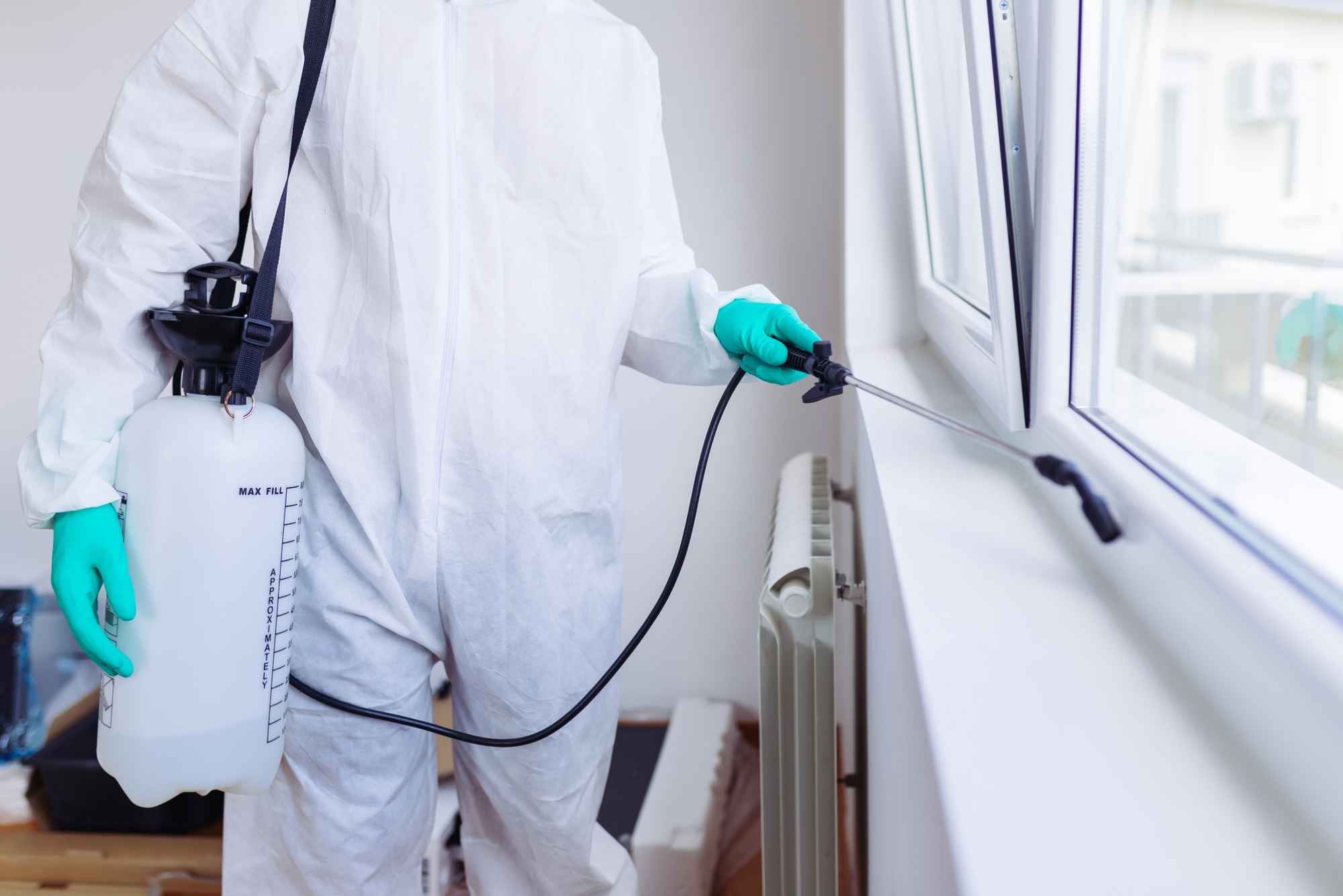As winter descends upon Ashburn, many residents prepare for the cold months by sealing up their homes and cozying up with warm blankets. However, as we focus on keeping warm, we often overlook a critical aspect of winter preparation—pests. The chilling weather does not eliminate pests; instead, many species find ways to endure the harsh conditions. This article explores coping with overwintering pests in Ashburn: how do pests survive the chilly weather.
Understanding Overwintering Pests
What Are Overwintering Pests?
Overwintering pests are species that enter a dormant state during colder months to survive. These pests may include insects, rodents, and even some plants. They seek shelter in homes, attics, basements, and gardens to avoid freezing temperatures. Common overwintering pests in Ashburn include:
- Ladybugs
- Boxelder bugs
- Stink bugs
- Spiders
- Rodents
Understanding how these pests survive the winter can help residents develop effective strategies for managing them.
How Do Pests Survive the Cold?
Pests have developed various adaptations to withstand winter’s chill. Here are a few ways these organisms manage to survive:
- Hibernation: Some pests, such as ladybugs, enter a state of hibernation during the winter months. They slow their metabolism and find a safe place to remain inactive until warmer weather returns.
- Migration: Certain species, like some types of beetles, may migrate to warmer areas during the colder months. They search for more hospitable environments to survive the winter.
- Antifreeze Proteins: Many insects produce antifreeze proteins that lower the freezing point of their bodily fluids. This adaptation helps prevent ice crystals from forming in their bodies, allowing them to endure extreme cold.
- Seeking Shelter: Pests often look for shelter in homes, garages, and sheds. Cracks in walls, windows, and doors provide ideal entry points for these creatures.
Coping with Overwintering Pests in Ashburn: Prevention Strategies
Seal Entry Points
One of the most effective ways to manage overwintering pests is by sealing entry points around your home. Inspect windows, doors, and foundation cracks for gaps that pests can exploit. Use caulk and weather stripping to close these openings.

Maintain a Clean Environment
Pests are attracted to food sources, so maintaining cleanliness is crucial. Regularly clean kitchens, dining areas, and storage spaces to eliminate crumbs and spills. Store food in airtight containers and promptly dispose of garbage.
Landscape Maintenance
Your outdoor environment can impact pest behavior. Keeping shrubs and trees trimmed away from the house can prevent pests from easily accessing your home. Additionally, remove any debris, such as leaves or wood piles, which can provide shelter for overwintering pests.
Use Natural Deterrents
Several natural substances can deter pests without harmful chemicals. Essential oils like peppermint, eucalyptus, and tea tree oil can repel insects. Consider placing cotton balls soaked in these oils near entry points to keep pests at bay.
Install Screens on Vents and Openings
Screens can act as a barrier, preventing pests from entering through vents, chimneys, and other openings. Ensure that these screens are secure and free from tears to maintain their effectiveness.
Monitor and Control Moisture Levels
Moisture can attract pests, making it crucial to monitor humidity levels in your home. Use dehumidifiers in damp areas and fix any leaks promptly. Regularly check basements, crawl spaces, and attics for signs of moisture.
FAQs About Coping with Overwintering Pests in Ashburn
1. What should I do if I find pests in my home during winter?
If you discover pests in your home during winter, it’s essential to identify the type of pest. For minor infestations, you can use traps or natural deterrents. For larger infestations, consider contacting a pest control professional for assistance.
2. Are there specific times when pests enter homes?
Pests tend to seek shelter as temperatures drop, typically in late fall or early winter. This is the best time to take preventive measures to keep them out.
3. Can I use pesticides to manage overwintering pests?
While pesticides can be effective, they should be used as a last resort. Opt for natural alternatives first, and consult with a pest control expert for the safest and most effective options.
4. How can I prevent rodents from entering my home?
To prevent rodents, ensure that all entry points are sealed, particularly around pipes and utility lines. Store food securely, and keep your home clean to minimize attractants.
5. When should I contact a pest control professional?
If you experience a significant pest problem or find it challenging to manage pests on your own, it’s advisable to contact a pest control professional. They can provide specialized treatment and advice tailored to your situation.
Understanding the Seasonal Cycle of Overwintering Pests
Life Cycle Overview
Many overwintering pests follow a distinct life cycle that is influenced by seasonal changes. Here’s an overview:
- Spring: As temperatures rise, pests emerge from their dormant state, seeking food and mating opportunities. This can lead to increased visibility of pests around homes and gardens.
- Summer: Pests reproduce rapidly during the warm months, leading to population spikes. They are often more active and can cause significant damage to crops and structures.
- Fall: As temperatures begin to drop, pests search for shelter to survive the winter months. This is when homeowners may notice an influx of pests seeking refuge indoors.
- Winter: During winter, pests remain dormant, conserving energy until conditions are favorable for activity again.
Table: Common Overwintering Pests in Ashburn
| Pest | Survival Strategy | Signs of Infestation |
|---|---|---|
| Ladybugs | Hibernation | Clusters near windows |
| Stink Bugs | Seeking shelter | Brownish shield-shaped bugs |
| Boxelder Bugs | Hibernation | Groups around light sources |
| Rodents | Nesting in attics or walls | Droppings and gnaw marks |
| Spiders | Seeking warmth | Webs in corners or entryways |
Effective Pest Management Strategies
Integrated Pest Management (IPM)
Integrated Pest Management (IPM) is a holistic approach to pest control that combines various methods to minimize pest populations. IPM emphasizes prevention and monitoring to reduce the need for chemical interventions. Key components of IPM include:
- Cultural Control: Modify the environment to make it less hospitable for pests. This can include sanitation practices and habitat modification.
- Physical Control: Utilize traps, barriers, and other physical methods to reduce pest populations.
- Biological Control: Introduce natural predators or parasites that can help manage pest populations without harming the ecosystem.
- Chemical Control: Use pesticides judiciously, opting for targeted treatments to minimize impact on beneficial organisms.
Seasonal Inspections
Conducting seasonal inspections of your home and property can help identify potential pest issues before they become significant problems. Check for signs of pest activity and take preventative measures as needed.
Community Collaboration
Working together with neighbors can amplify pest management efforts. Consider sharing tips, resources, and experiences regarding pest control strategies. Community-wide initiatives can lead to more effective pest management and promote a healthier environment.
Coping with overwintering pests in Ashburn: how do pests survive the chilly weather is a critical aspect of winter preparation. By understanding the strategies that pests use to survive and implementing preventive measures, residents can protect their homes from infestations. Maintaining cleanliness, sealing entry points, and utilizing natural deterrents are essential steps to take before the colder months arrive. Remember that regular inspections and community collaboration can also enhance your pest management efforts.




